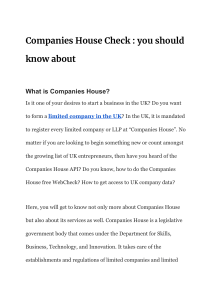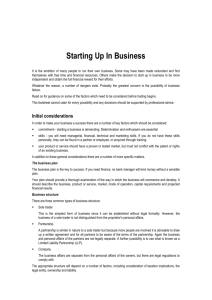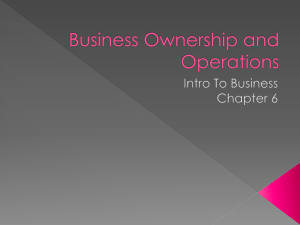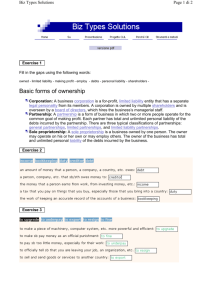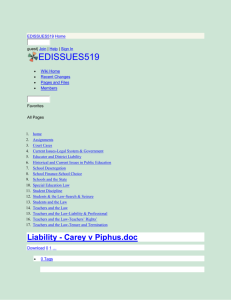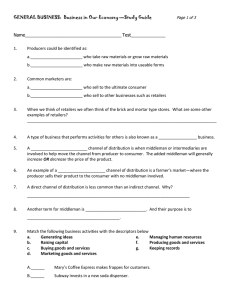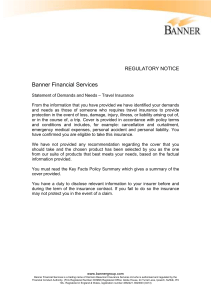Legal structures: the basics
advertisement
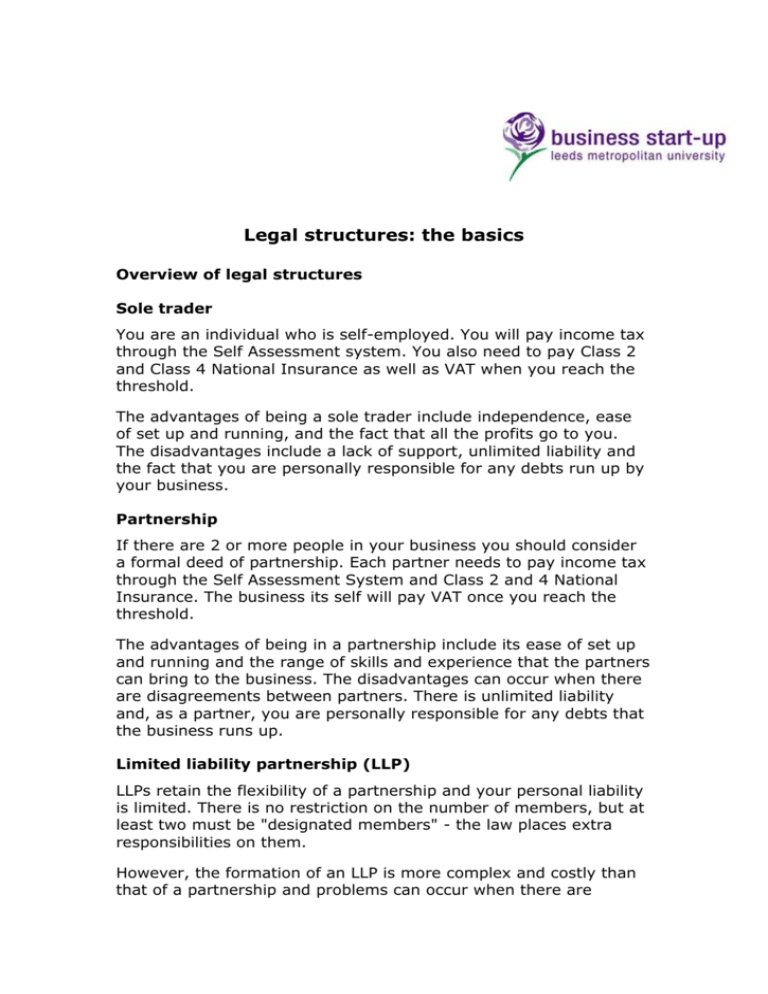
Legal structures: the basics Overview of legal structures Sole trader You are an individual who is self-employed. You will pay income tax through the Self Assessment system. You also need to pay Class 2 and Class 4 National Insurance as well as VAT when you reach the threshold. The advantages of being a sole trader include independence, ease of set up and running, and the fact that all the profits go to you. The disadvantages include a lack of support, unlimited liability and the fact that you are personally responsible for any debts run up by your business. Partnership If there are 2 or more people in your business you should consider a formal deed of partnership. Each partner needs to pay income tax through the Self Assessment System and Class 2 and 4 National Insurance. The business its self will pay VAT once you reach the threshold. The advantages of being in a partnership include its ease of set up and running and the range of skills and experience that the partners can bring to the business. The disadvantages can occur when there are disagreements between partners. There is unlimited liability and, as a partner, you are personally responsible for any debts that the business runs up. Limited liability partnership (LLP) LLPs retain the flexibility of a partnership and your personal liability is limited. There is no restriction on the number of members, but at least two must be "designated members" - the law places extra responsibilities on them. However, the formation of an LLP is more complex and costly than that of a partnership and problems can occur when there are disagreements between the members. If the number of partners is reduced, and there are fewer than two designated members, then every member is deemed to be a designated member. Limited liability company Each director of the company needs to register for Self Assessment. Directors of a limited company become employees so they have different NI obligations. You need to always display your full corporate name outside the business premises. You need to file statutory documents such as accounts and annual returns. In a limited liability company your personal financial risk will be restricted to how much you invest in the business and any guarantees you have given in order to obtain financing. The disadvantage is that type of company also brings a range of extra legal duties, including the maintenance of the company's public records, eg filing of accounts. Franchise This means that you are making a contract with the franchiser. The major plus point of a franchise is that it takes advantage of the success of an established business and support networks. Its disadvantage is that your freedom to manage the business is limited by the terms of the franchise agreement. Also franchisees often pay a share of their turnover to the franchiser, which brings down overall profits. Social enterprises Social enterprises are businesses that trade for a social purpose and represent a diverse and growing range of business activity across the UK.

